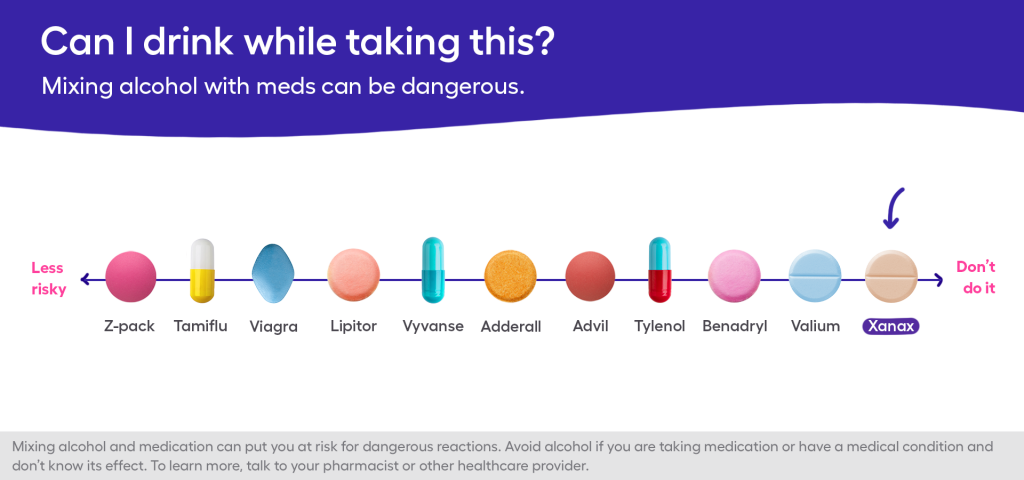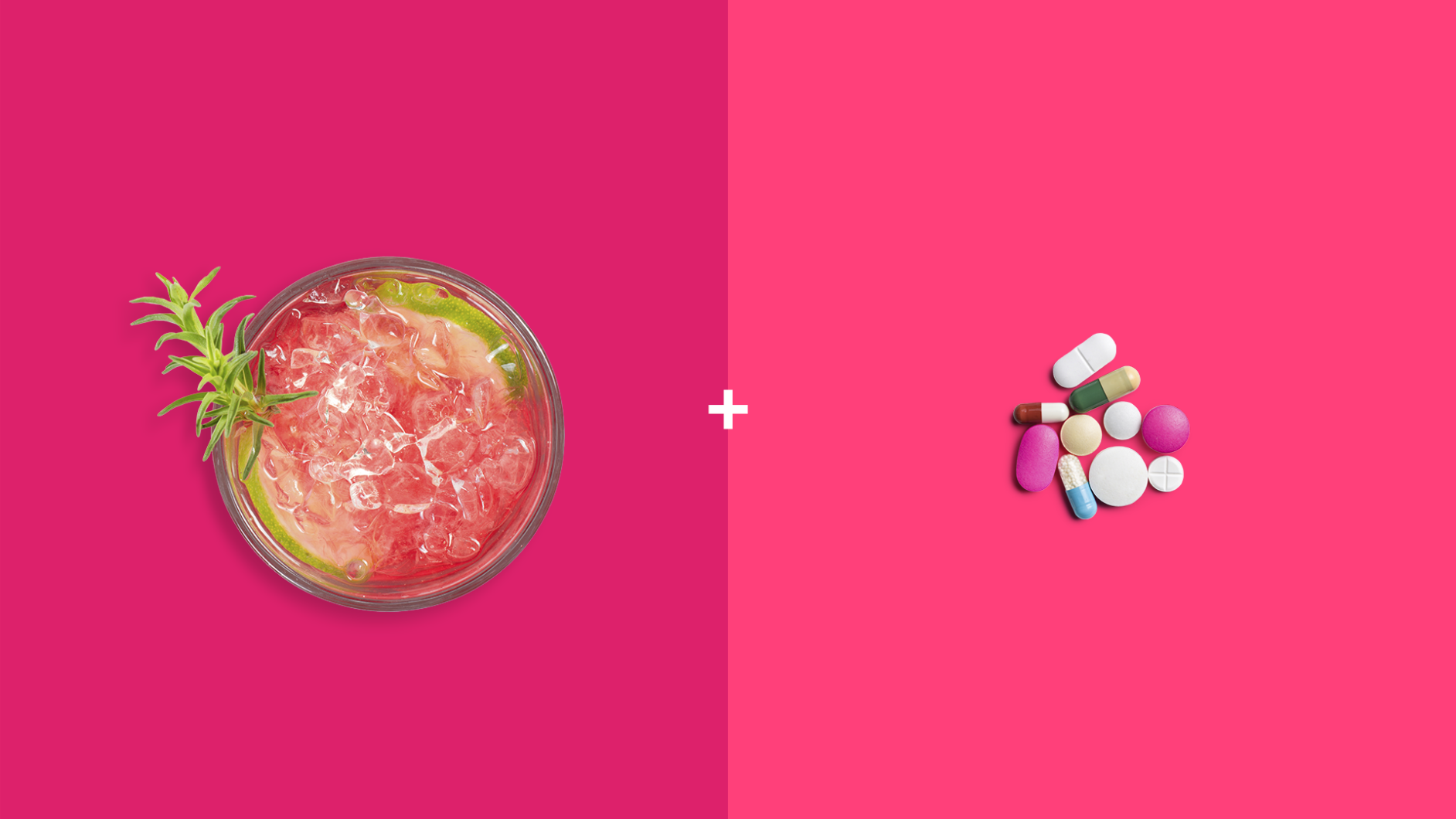Key takeaways
Mixing benzodiazepines with alcohol can lead to serious, potentially deadly side effects, including lethal overdoses and respiratory depression.
The combined use of alcohol and benzodiazepines, both sedatives, significantly intensifies their effects, including sedation and slowed breathing, which could lead to unconsciousness or even death.
The prevalence of anxiety disorders and the increasing prescription rates of benzodiazepines, along with high rates of alcohol consumption, raise concerns about the risks of combining these substances.
When taking a benzodiazepine for anxiety, it is important to avoid alcohol until the medication has cleared from the system, with the necessary wait time varying based on the specific medication and dosage. Consult your healthcare provider for more information and medical advice.
Some people drink alcohol to curb anxiety. Some take Xanax. Some take Xanax and alcohol, such as a glass or two of wine. But this, doctors and pharmacists say, is not safe.
“You should never combine benzodiazepines with alcohol,” says Anna Lembke, MD, director of addiction medicine at Stanford University School of Medicine in Palo Alto, California. The results, she says, can be deadly.
Mixing alcohol and anxiety meds
Benzodiazepines refer to the class of drugs that Xanax (alprazolam) and other well-known anti-anxiety medications, such as Ativan (lorazepam) and Valium (diazepam), fall into.
“If you combine [benzodiazepines with alcohol] you can have a serious drug-drug interaction, including a lethal overdose,” she says.
Part of the reason is that both are sedatives. Individually, they can relax muscles, make you sleepy, and reduce feelings of panic, fear, and agitation. Together, they do all of those things with greater intensity. But that is not all the combo does. Taking them simultaneously can amplify the potential for certain scary side effects, like respiratory depression (also known as hypoventilation).
In layman’s terms, respiratory depression is when your breathing slows to a dangerous level. And if this happens, the risk of consequences is serious. Worst case scenario? “[You] fall asleep and stop breathing,” Dr. Lembke says.
Unfortunately, the use of alcohol and anxiety medications are both prevalent enough that this worst-case scenario is not at all far-fetched. Anxiety disorders are the most common mental illness in the United States, affecting 18.1% of the adult population each year, according to the Anxiety and Depression Association of America. And doctors are prescribing benzodiazepines to treat anxiety at increasing rates. A study published in the Journal of the American Medical Association (JAMA) reports that the number of doctor visits that resulted in a benzodiazepine prescription almost doubled between 2003 and 2015, increasing from 3.8 to 7.4%. Furthermore, benzodiazepines are increasingly being prescribed for mild to moderate anxiety when they are technically meant for severe or acute anxiety, Lembke says.

As for alcohol use, the National Survey on Drug Use and Health found that in 2016, 54.6% of adults 26 and older were current alcohol users. In all, benzodiazepines were at least partially responsible for 11,537 overdose-related deaths in 2017, according to the National Institute on Drug Abuse.
The takeaway here is that if you are using a benzodiazepine for anxiety, make sure that you are using it properly. This means waiting until the drug is out of your system before hitting happy hour. The timeframe for this, however, is not set in stone.
“It really depends on a few things,” says Rachel Firebaugh, Pharm.D., a clinical assistant professor at the University of Washington School of Pharmacy in Seattle. She explains that the medication dosage and the amount of alcohol involved are important factors. “If it were a small amount of alcohol and a lower dose of the benzo, there would be a lower risk,” she says.
Benzos and alcohol side effects
Dr. Lembke says people should wait one or maybe even two days after taking a benzodiazepine before drinking, emphasizing that some benzodiazepines are longer-acting (like Valium) and will stay in your system longer than others (Xanax is considered shorter acting). And while she points out that overdoses are more likely to occur in people who are also taking other prescription and/or recreational drugs (including opioids), she also urges people to seek immediate medical attention in the event of a suspected overdose.
Dr. Firebaugh says signs of overdose could include difficulty breathing, lost consciousness, and the inability to wake someone. Also be on the lookout for dizziness, slurred speech, confusion, and weakness.
It is also important to recognize that benzodiazepines are highly addictive, Drs. Lembke and Firebaugh say, especially for those who already struggle with alcohol abuse or misuse.
“A lot of people get prescribed benzos and have no idea they are addictive,” Dr. Lembke says. “The bottom line is we use benzos too frequently and too casually. They are very serious drugs and they really should only be used in very serious situations.”
Also read:




